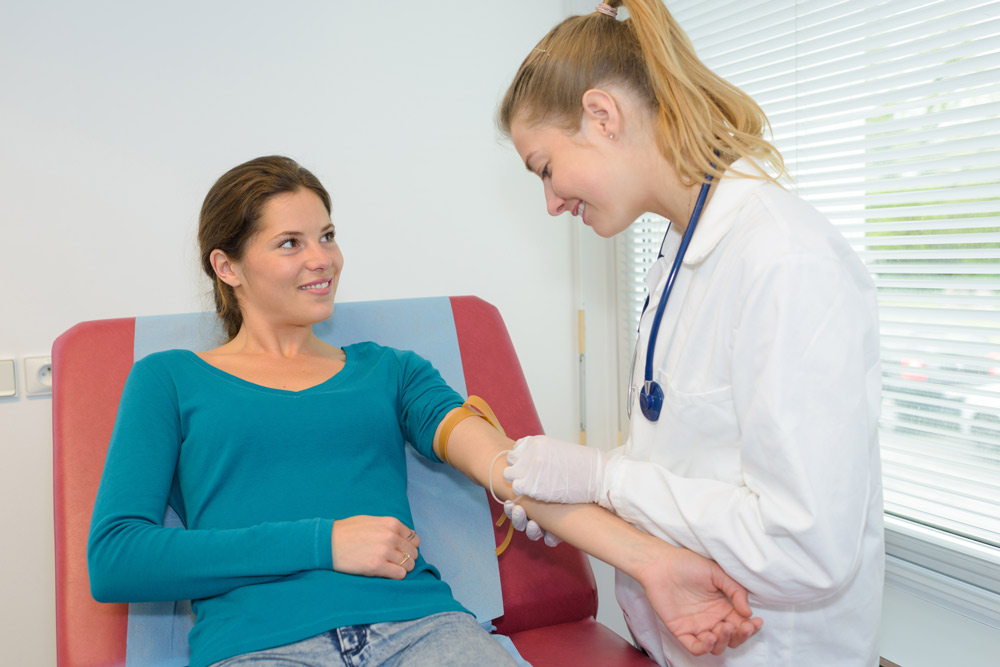what Is a Phlebotomist? A Complete Definition and Essential Guide to the Blood Collection Profession
If you’re interested in healthcare careers or considering a role that plays a vital part in patient care and diagnostics, understanding what a phlebotomist does is essential. This comprehensive guide explores the ins and outs of the blood collection profession, highlighting the skills, responsibilities, benefits, and practical tips to pursue a successful career in this field.
Introduction
Phlebotomy is a crucial component of modern medical diagnostics, involving the collection of blood samples to diagnose illnesses, monitor health conditions, and facilitate various medical treatments. At the heart of this process are phlebotomists,trained healthcare professionals responsible for obtaining blood safely and efficiently from patients. Whether you are a patient undergoing a routine blood test or an aspiring healthcare worker, understanding the role of a phlebotomist helps appreciate thier importance in the healthcare system.
What Is a Phlebotomist? A Clear Definition
A phlebotomist is a trained medical professional specialized in drawing blood from patients for laboratory testing, blood donations, or research purposes. Their primary obligation is to perform venipuncture procedures safely, accurately, and compassionately, ensuring patient comfort and test reliability.
Phlebotomists work closely with healthcare providers such as doctors, nurses, and laboratory technicians to ensure that blood samples are collected, labeled, and transported correctly for analysis. Their role is vital in diagnosing diseases, monitoring health conditions, and supporting ongoing medical research.
The Role of a Phlebotomist in Healthcare
Key Responsibilities of a Phlebotomist
- Preparing patients for blood collection procedures
- Identifying patients accurately to avoid errors
- Applying tourniquets and locating suitable veins for blood draw
- performing venipuncture using sterile techniques
- Collecting blood specimens in appropriate containers
- Labeling and handling samples securely
- Ensuring patient safety and comfort during the procedure
- maintaining cleanliness and infection control standards
- Documenting collection details in medical records
- Transporting specimens to laboratories efficiently
Work Environment and Settings
Phlebotomists work in various healthcare settings, including:
| Work Environment | Description |
|---|---|
| Hospitals | emergency rooms, outpatient departments, and labs |
| Clinics and physician offices | routine blood tests and health screenings |
| Blood donation centers | Collecting blood donations for transfusions |
| Laboratories | Preparing samples for testing and analysis |
| Mobile blood drives | Temporary setups for blood collection in community settings |
Skills and Qualifications Needed to Become a phlebotomist
Essential Skills
- Attention to detail: Ensuring the correct specimen collection and labeling
- Manual dexterity: precise handling of needles and equipment
- Patient dialog: Explaining procedures clearly and easing anxious patients
- compassion and empathy: Providing comfort to nervous or distressed patients
- physical stamina: Standing for long periods and handling equipment
- Adaptability: Managing various patient needs and emergency situations
Educational and Certification Requirements
moast employers require phlebotomists to have:
- A high school diploma or equivalent
- Completion of a recognized phlebotomy training program (typically 40-80 hours)
- Certification from a professional body such as the American Society for Clinical Pathology (ASCP) or the National Phlebotomy Association (NPA)
Certifications enhance employability and demonstrate competence, although requirements vary by state and employer.
Benefits of Choosing a Career as a Phlebotomist
- High demand: A growing need for blood collection professionals due to expanding healthcare services
- Relatively short training periods: Speedy pathway to entering the healthcare field
- Job stability: Essential role with consistent job opportunities
- Flexibility: Opportunities for full-time, part-time, and mobile work
- Personal fulfillment: Contributing directly to patient health and lifesaving efforts
Practical Tips for Aspiring Phlebotomists
- Choose accredited training programs: Ensure the program is recognized by relevant health authorities for better job prospects.
- Gain hands-on experiance: Seek internships or externships during your training to build confidence and skills.
- Get certified: Obtain professional certification to stand out in the job market.
- Develop excellent patient interaction skills: Practice empathy and clear communication to reduce patient anxiety.
- Stay current with best practices: Attend workshops and continuing education opportunities.
Case Study: A Day in the Life of a Phlebotomist
Maria, a certified phlebotomist working at a busy hospital, starts her day by reviewing her schedule. Her tasks include drawing blood from patients needing routine lab tests,preparing samples for urgent analysis,and assisting in a blood drive in the hospital lobby. Throughout her day, Maria demonstrates excellent patient care, manages complex venipunctures with patience, and ensures all specimens are correctly labeled and transported.Her careful attention to detail ensures accurate lab results,contributing significantly to patient diagnoses and treatment plans.
Additional Resources and Certification Options
- American Society for Clinical Pathology (ASCP): https://www.ascp.org
- National Phlebotomy Association (NPA): https://www.nationalphlebotomy.org
- National Healthcareer Association (NHA): https://www.nhanow.com
Conclusion
Becoming a phlebotomist offers a rewarding career path for those interested in healthcare, patient interaction, and medical diagnostics. With specialized training, certification, and a compassionate approach, phlebotomists play a critical role in the healthcare system by facilitating accurate diagnosis and treatment.Whether you’re seeking a quick entry into healthcare or a long-term career with growth opportunities, the blood collection profession provides stability, meaningful work, and the chance to make a real difference in people’s lives. embrace this vital profession and take your first step toward a fulfilling healthcare career today!
